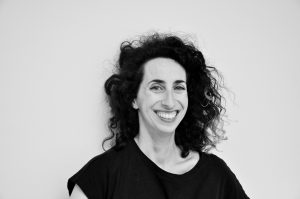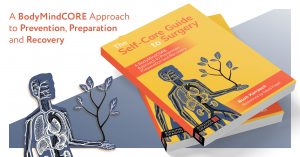 Sarah Scharf, MFA is a yoga teacher, author of the upcoming book, Holding Space: The Creative Performance and Voice Workbook for Yoga Teachers and theatre artist. She holds an MFA in Physical Theatre and has completed multiple training courses in Yoga of various styles. In London she taught at Triyoga – the largest studio in Europe – and worked as a mentor for the Yogacampus Teacher Training. She runs popular workshops and training on voice work and performance skills for yoga teachers, and works as a movement director and teaching artist for theatre. She is an American currently living in Vienna.
Sarah Scharf, MFA is a yoga teacher, author of the upcoming book, Holding Space: The Creative Performance and Voice Workbook for Yoga Teachers and theatre artist. She holds an MFA in Physical Theatre and has completed multiple training courses in Yoga of various styles. In London she taught at Triyoga – the largest studio in Europe – and worked as a mentor for the Yogacampus Teacher Training. She runs popular workshops and training on voice work and performance skills for yoga teachers, and works as a movement director and teaching artist for theatre. She is an American currently living in Vienna.
Improvisational theatre has a rule that is not to be broken under any circumstances: Yes, And. The principle is simple: whatever is happening must be accepted before we add to it. The pandemic has made this principle my greatest ally. It helps me acknowledge the challenge of uncertain work income, the inability to plan or make decisions with a full picture and the intensity of grief that has rocked me as our world has changed so quickly. At a recent workshop I gave, a longtime yoga and meditation teacher commented that improvisation is very much like mindfulness. I totally agree. Mindfulness as a practice of being aware of what is present, what is actually happening versus being stuck in our thoughts and expectations, is the basis of improvisation.
The “new normal”
Teachers of all types have suddenly been asked to teach through new mediums. People with different types of jobs are zooming and working remotely. Those of us who have work that can be moved online are lucky, yet the transition has been rocky for a lot of us. My background in theatre and many years of teaching experience have really helped me to adapt. Most of this blog is adapted from my upcoming book Holding Space:The Creative Performance and Voice Workbook for Yoga Teachers. We don’t need to be trained actors to communicate clearly and effectively through screens. We do need to embrace improvisation, allow for the learning curves and be extra kind to ourselves. Continue reading

